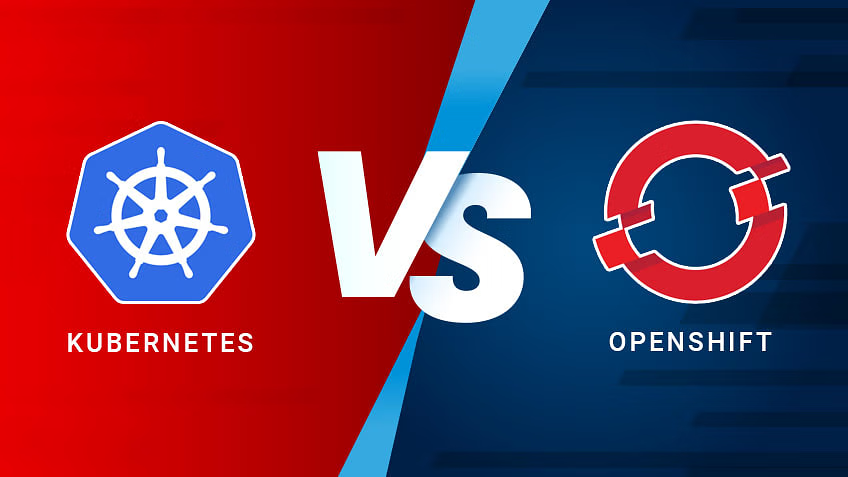
Kubernetes vs Red Hat OpenShift: Which Is Right for Your Business?
🔹 Introduction
In today’s cloud-native era, businesses are rapidly adopting containerization to improve scalability, efficiency, and cost savings. Two of the most talked-about platforms are Kubernetes and Red Hat OpenShift.
While Kubernetes is the de facto standard for container orchestration, OpenShift provides an enterprise-ready platform built on top of Kubernetes with added developer and security features.
But which one is right for your business? 🤔
This blog dives deep into differences, pros & cons, case studies, industry stats, and FAQs to help you decide.
⚖️ Kubernetes vs Red Hat OpenShift: Quick Comparison
Feature Kubernetes 🛠 Red Hat OpenShift 🏢 Type Open-source container orchestration Enterprise Kubernetes platform Ease of Use Requires more manual setup Pre-configured, enterprise-ready Security Security handled by users Built-in enterprise security policies Ecosystem Highly flexible & extensible Opinionated, with integrated tools Support Community-driven Backed by Red Hat enterprise support Best For Businesses with strong DevOps skills Enterprises needing compliance & managed solutions
📊 Industry Statistics
🌍 91% of enterprises use Kubernetes in production (CNCF Survey, 2024).
🔐 62% of IT leaders say built-in security & compliance is a top reason for choosing OpenShift (Red Hat Report).
💰 Businesses using container orchestration report 40% faster application delivery and up to 30% infrastructure cost reduction.
✅ Advantages of Kubernetes
⚡ Scalability: Perfect for handling millions of containers.
🔄 Portability: Works across cloud providers (AWS, GCP, Azure).
🛠 Ecosystem: Huge open-source community, thousands of integrations.
📈 Flexibility: Developers control every component of deployment.
Case Study:
A fintech startup scaled its payment API across 3 cloud providers using Kubernetes, cutting downtime by 45% and ensuring global high availability.
✅ Advantages of OpenShift
🏢 Enterprise-Ready: Integrated CI/CD pipelines, monitoring, and DevSecOps tools.
🔐 Enhanced Security: Strict security policies out-of-the-box (role-based access, compliance-ready).
🧑💼 Enterprise Support: Backed by Red Hat & IBM.
🚀 Developer Productivity: Pre-built developer tooling for faster deployment.
Case Study:
A telecom giant migrated to OpenShift for 5G application deployment and reduced time-to-market by 35%, while ensuring compliance with telecom-grade security.
"Why Businesses Need Container Orchestration"
For organizations considering container adoption as part of their broader modernization strategy, exploring Cloud Migration services
🆚 When to Choose Kubernetes vs OpenShift
Choose Kubernetes if:
You have strong in-house DevOps expertise.
Flexibility & customization are a priority.
You want to minimize licensing costs.
Choose OpenShift if:
You are a large enterprise needing security, compliance, and support.
Faster go-to-market is critical.
You need integrated CI/CD pipelines.
"Kubernetes vs OpenShift in Digital Transformation"
Both platforms play a key role in digital transformation for business , especially when enterprises want to modernize legacy applications, accelerate innovation, and scale globally. Kubernetes provides flexibility, while Open Shift offers enterprise-grade governance.
📚 FAQs
1. Is OpenShift just Kubernetes?
➡️ OpenShift is Kubernetes + enterprise features like integrated monitoring, CI/CD, and enterprise security.
2. Is OpenShift more expensive than Kubernetes?
➡️ Yes, OpenShift comes with licensing costs, while Kubernetes is open-source and free.
3. Can I migrate from Kubernetes to OpenShift?
➡️ Yes, OpenShift supports Kubernetes workloads natively.
4. Which is better for small businesses?
➡️ Kubernetes is usually more cost-effective for startups.
5. Which is better for large enterprises?
➡️ OpenShift provides enterprise-grade governance, making it a better fit.
Kubernetes Official Documentation
For a deeper technical dive, consult the Kubernetes and Redhat Open Shift official documentation
🎯 Conclusion
Both Kubernetes and Red Hat OpenShift are powerful solutions, but the choice depends on your business size, compliance needs, and IT expertise.
👉 Startups & mid-sized companies often thrive with Kubernetes due to its cost-effectiveness and flexibility.
👉 Enterprises in regulated industries (finance, healthcare, telecom) find OpenShift better suited for compliance and support.
🚀 Whether you’re migrating from VMware, modernizing legacy apps, or scaling globally, choosing the right container orchestration platform is a business-critical decision.